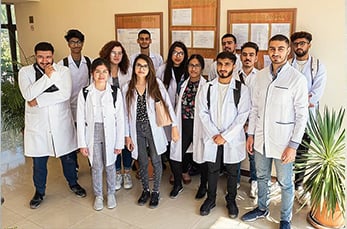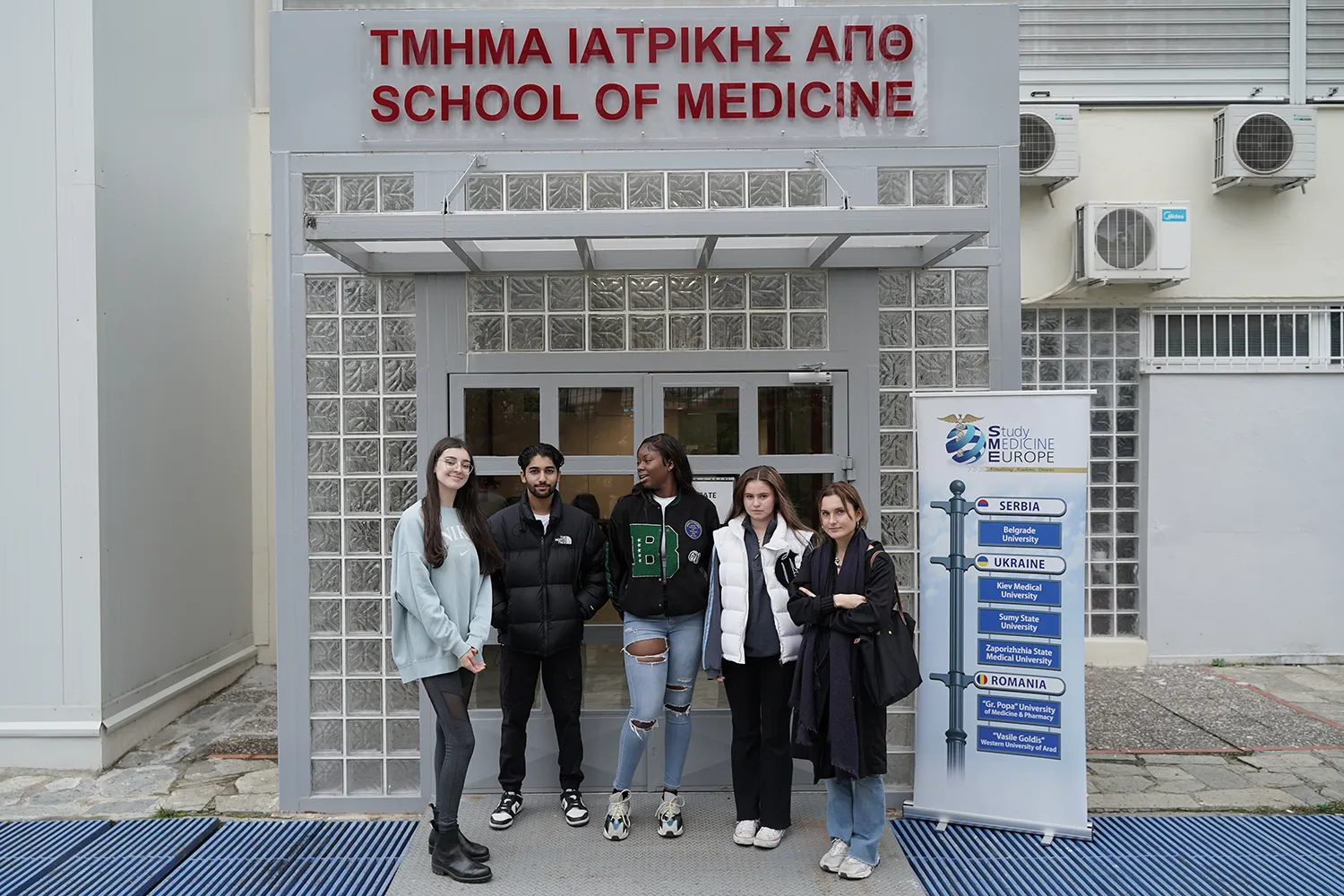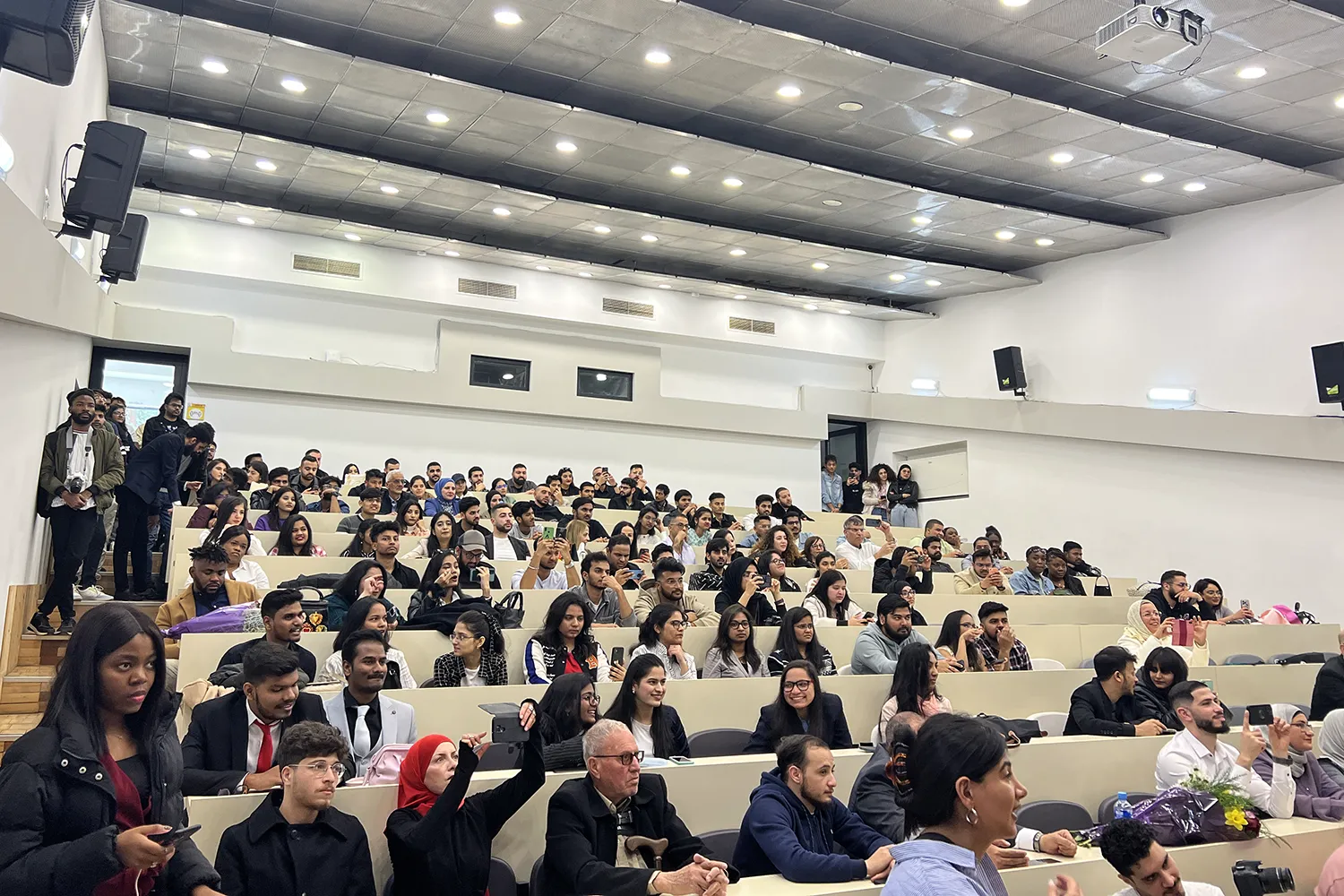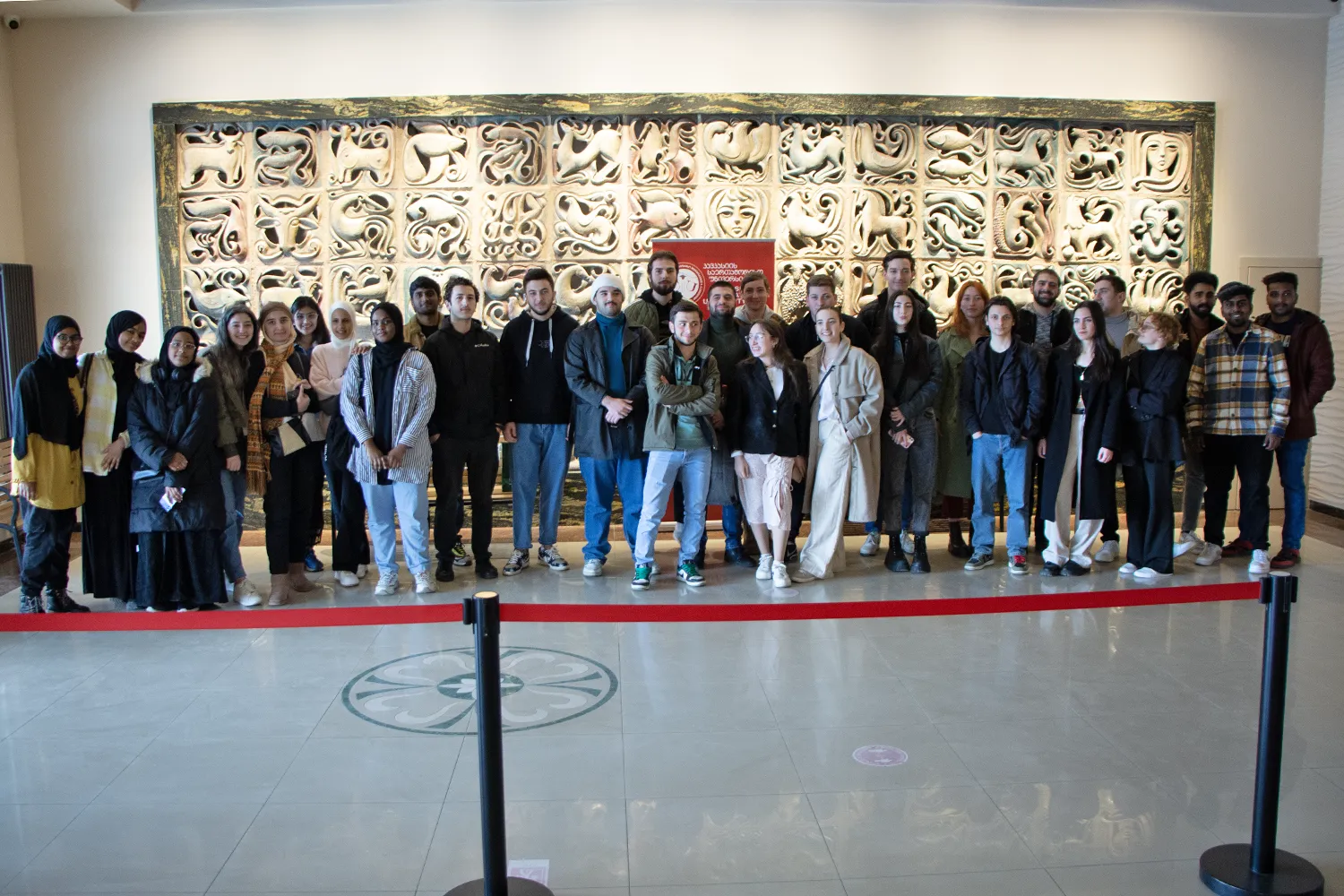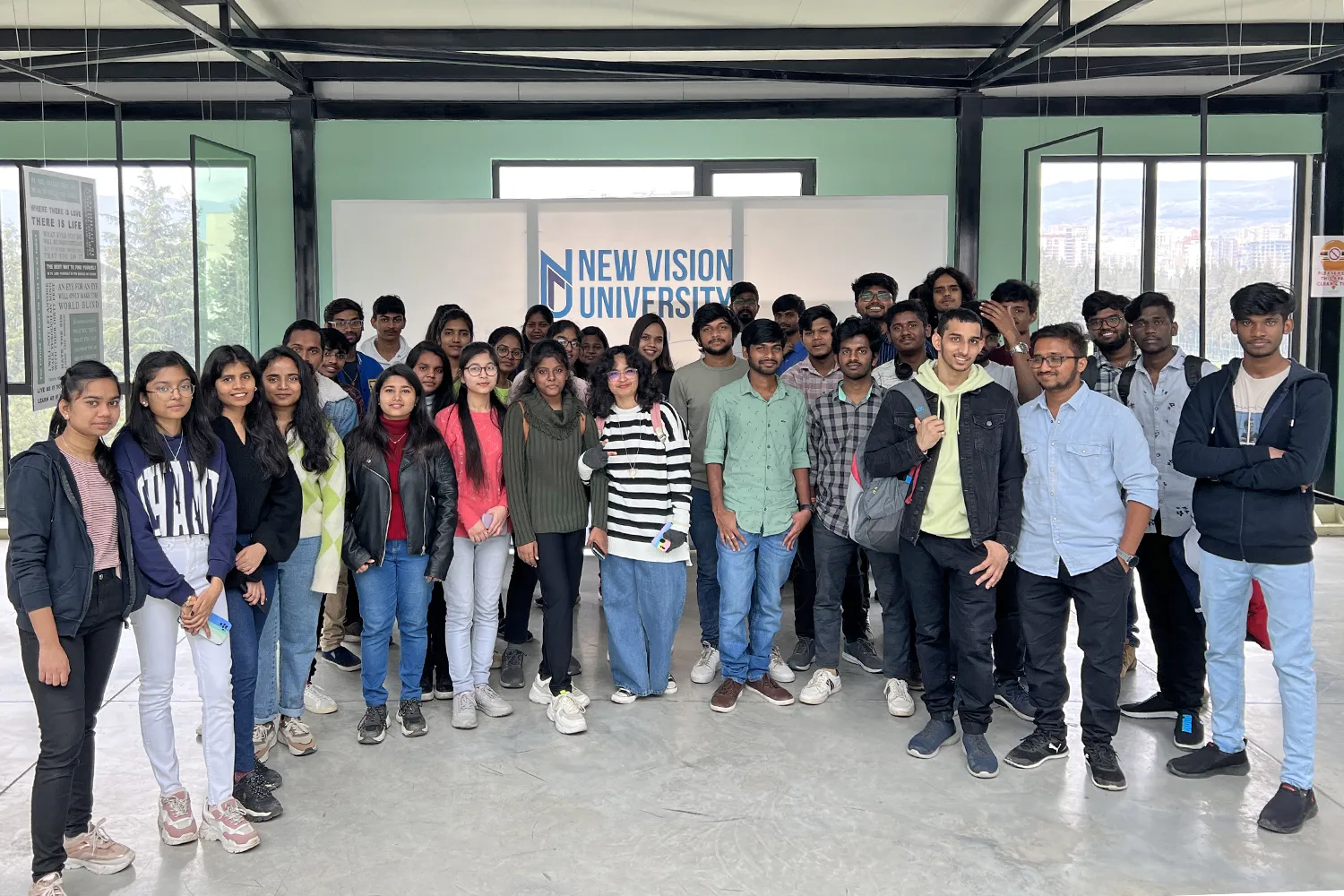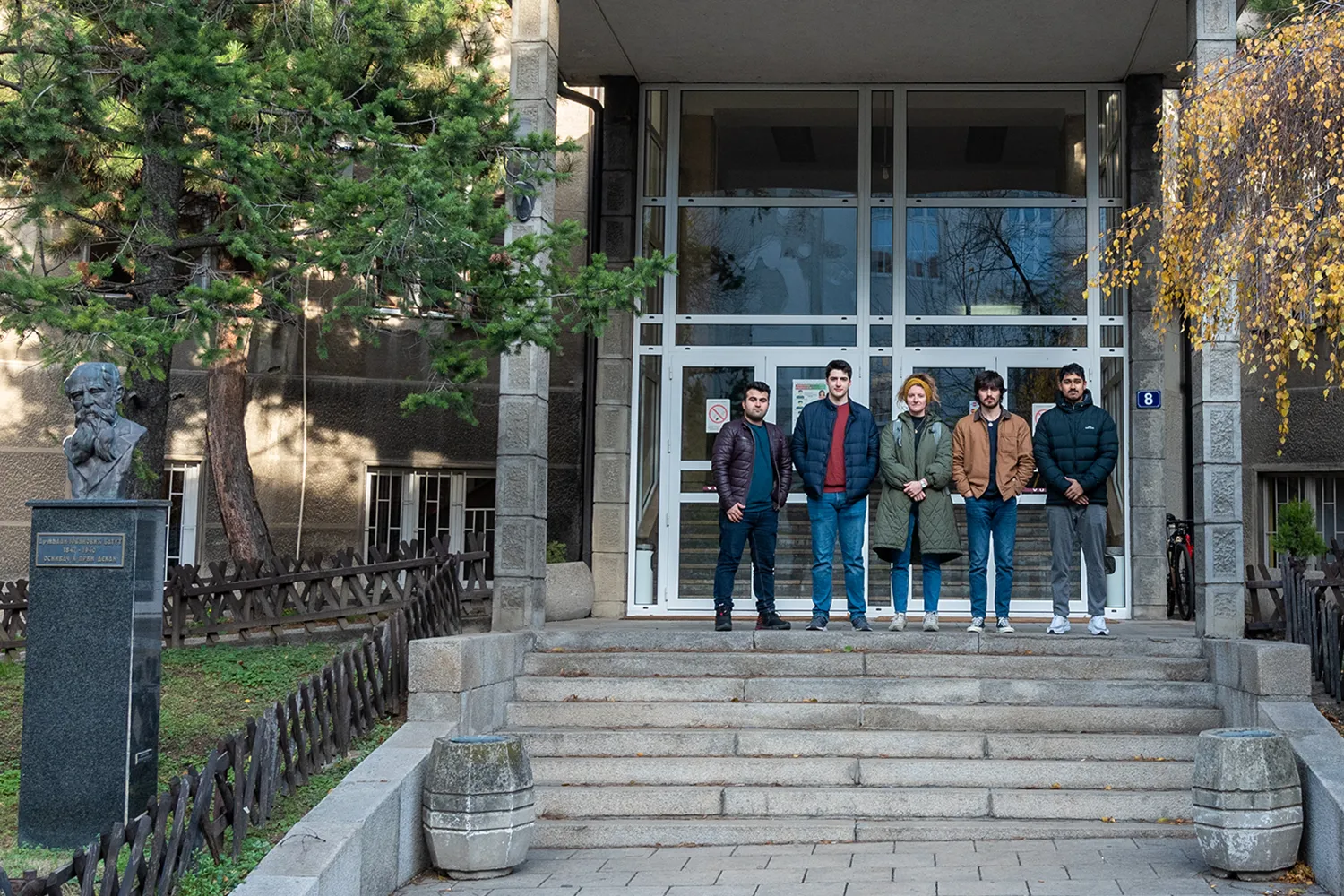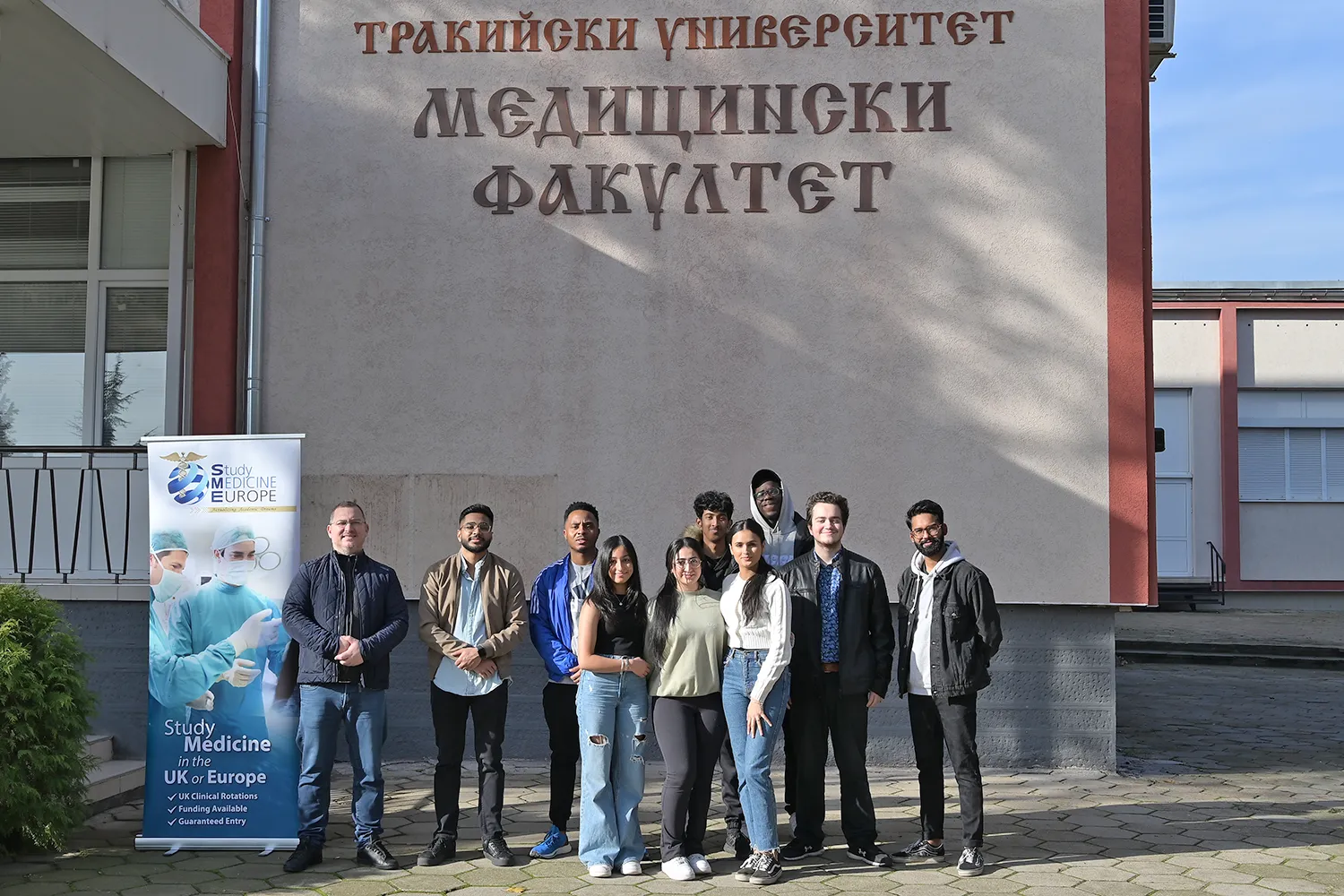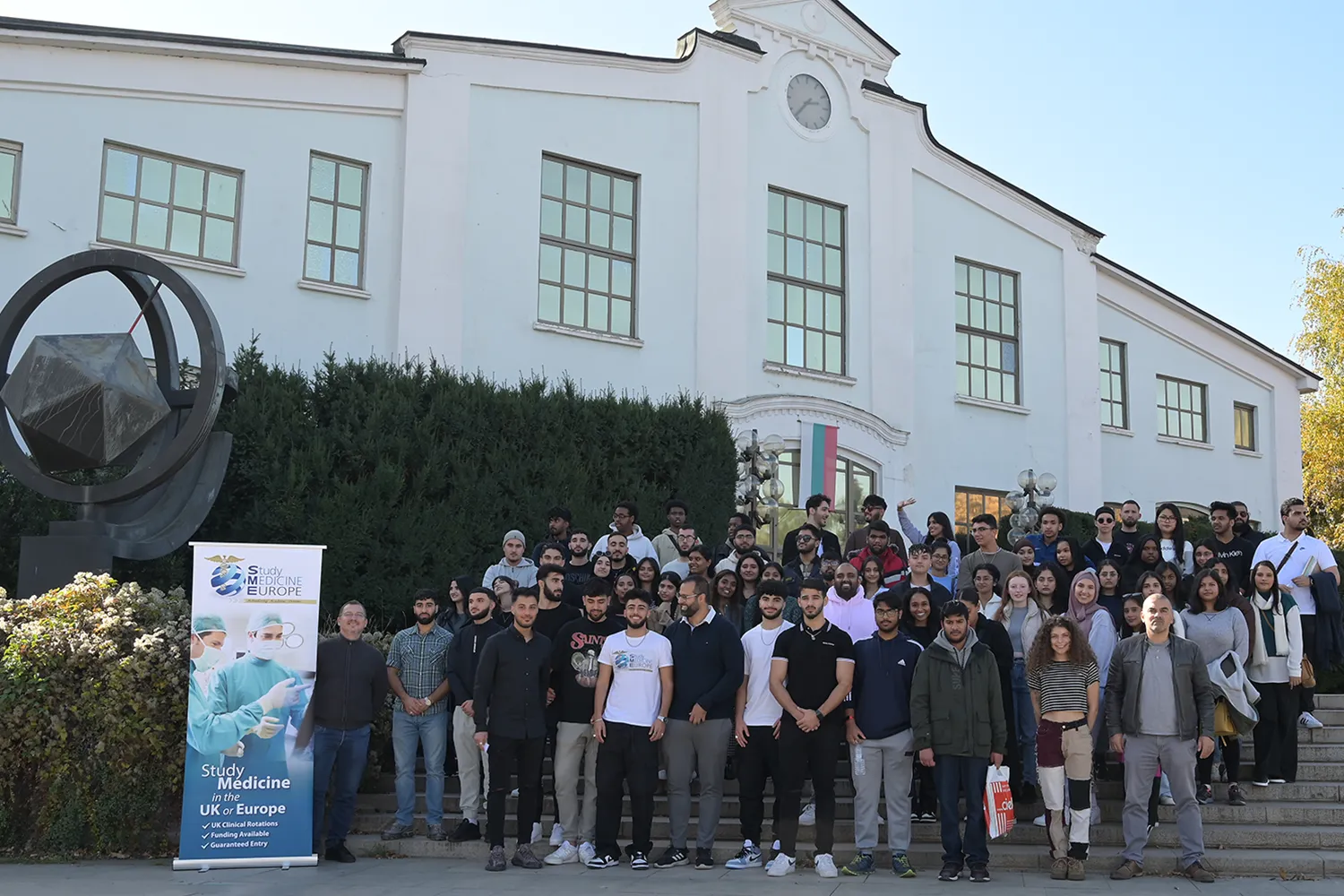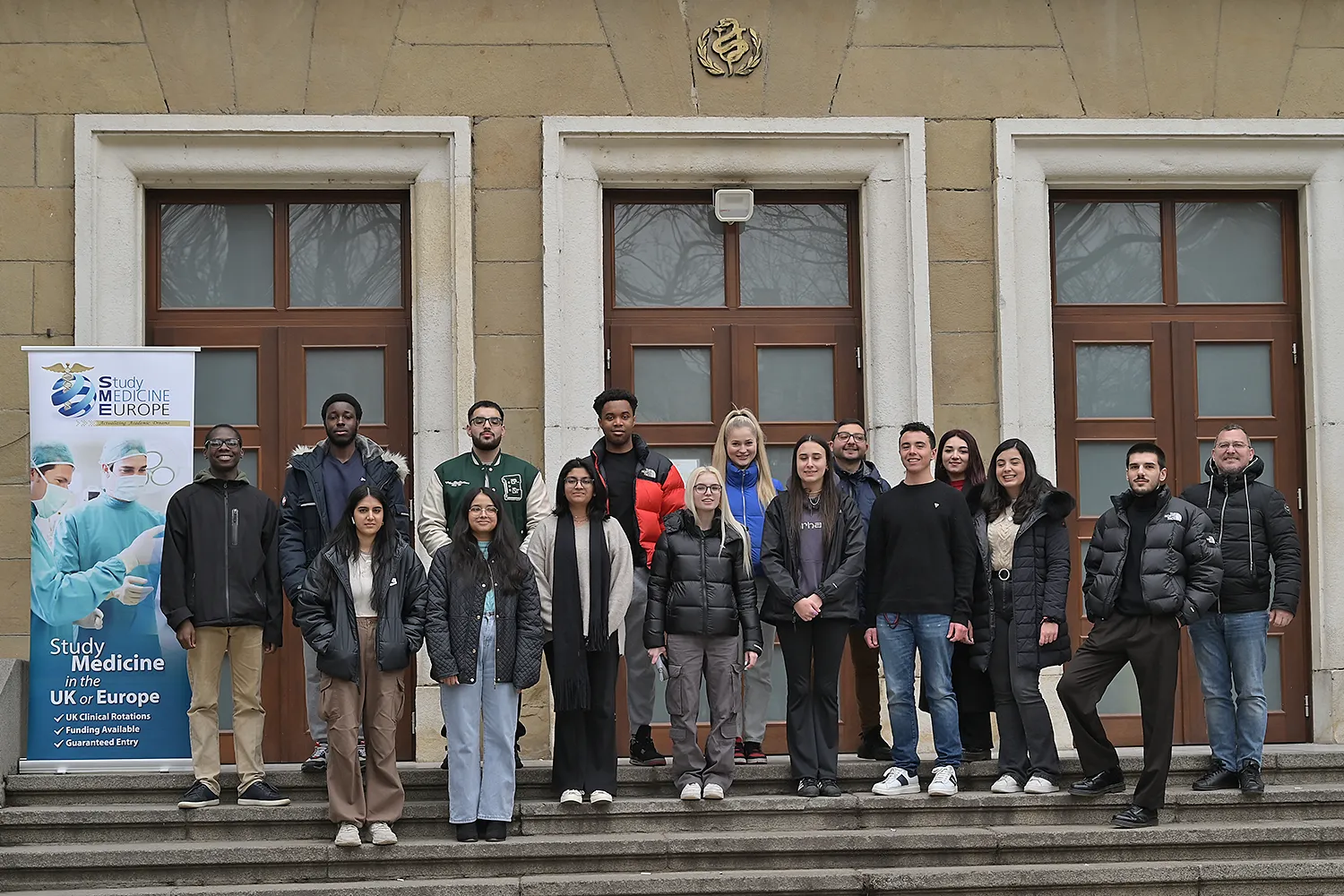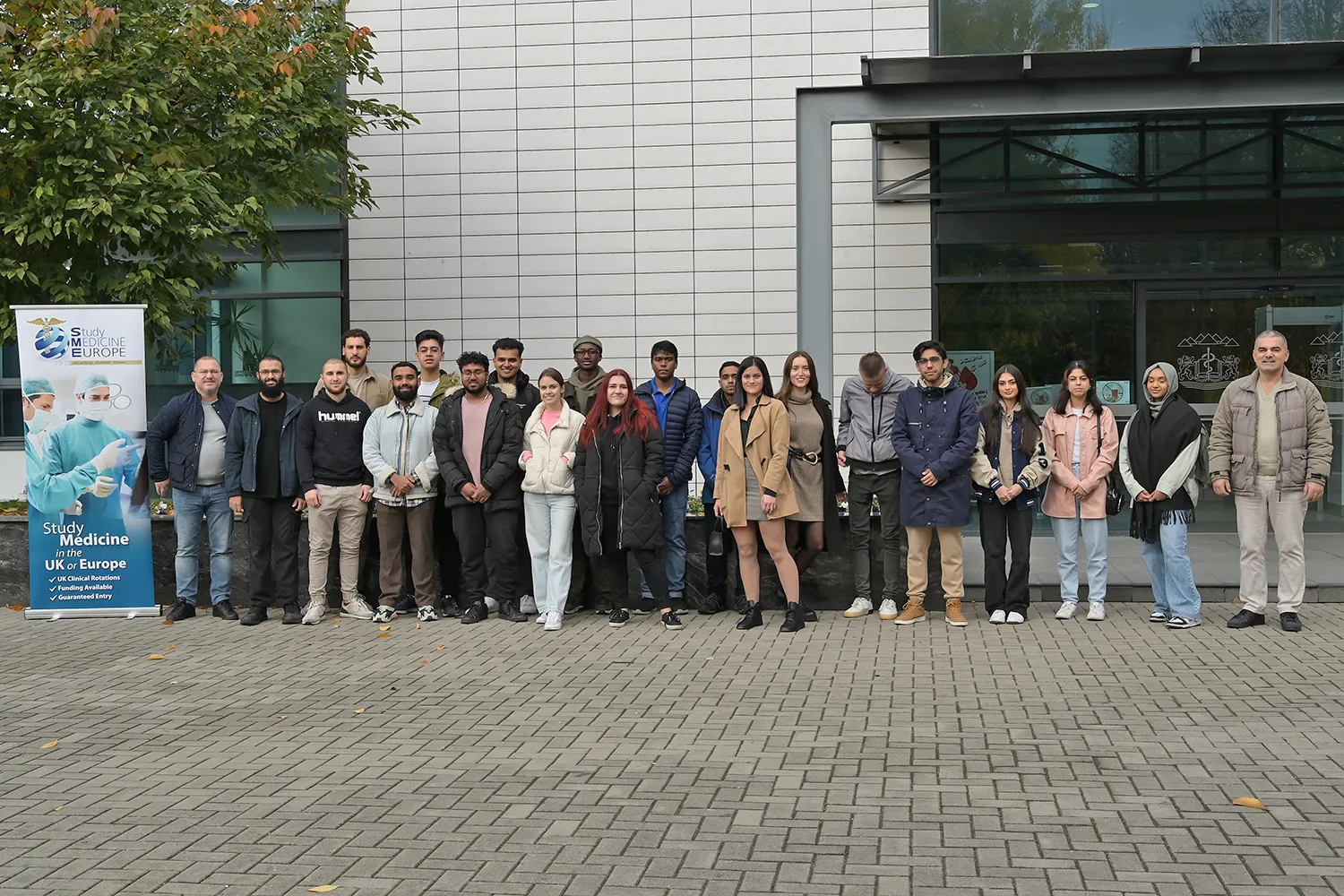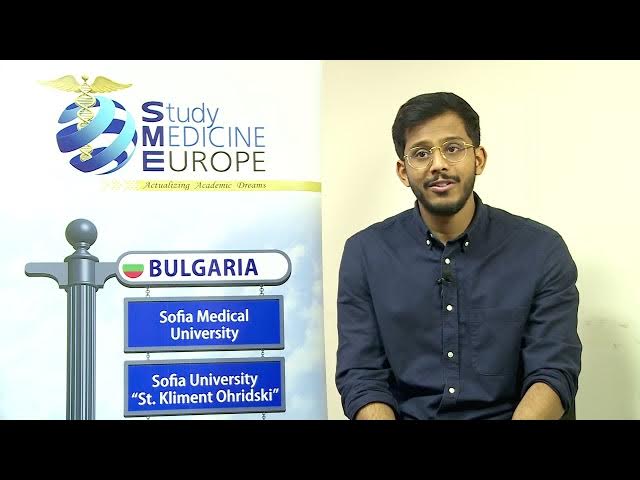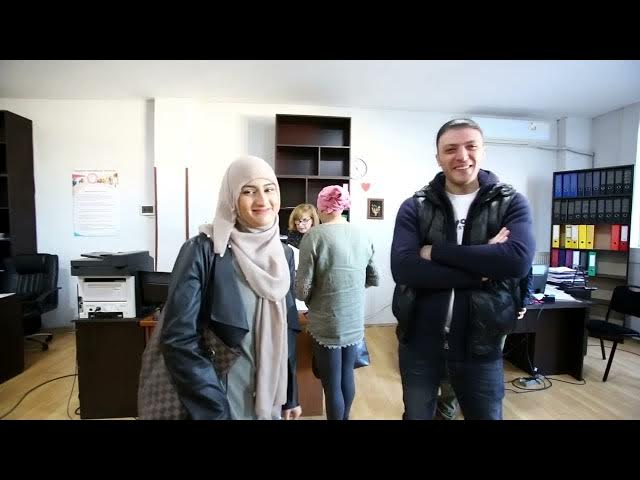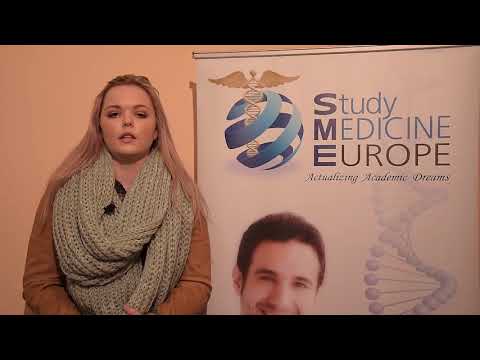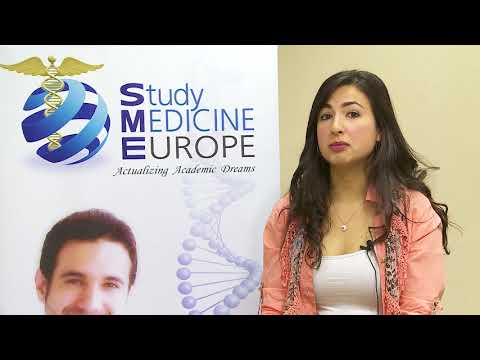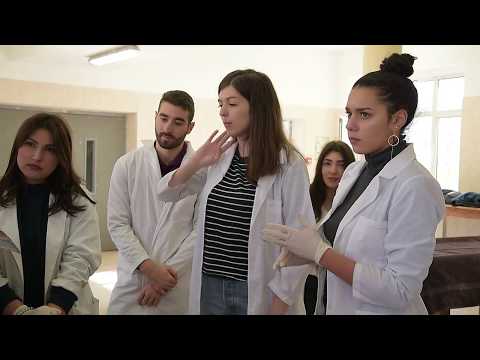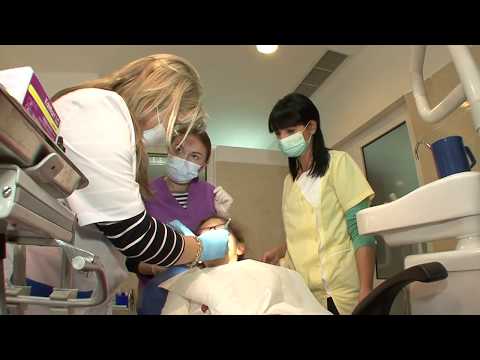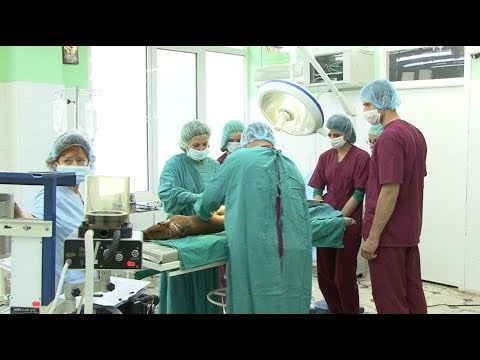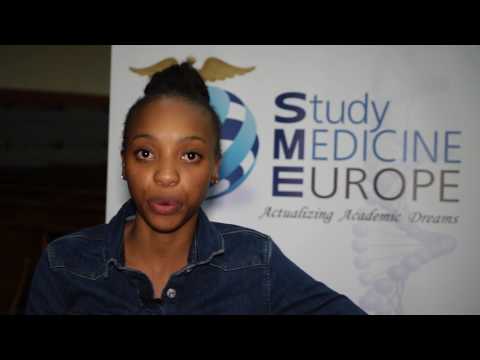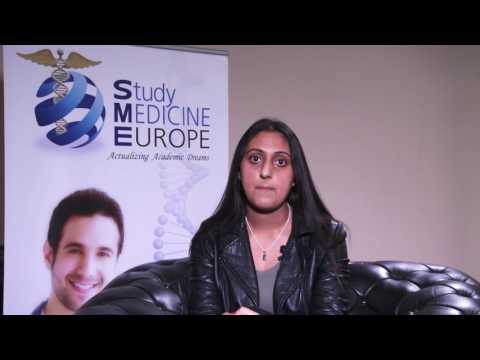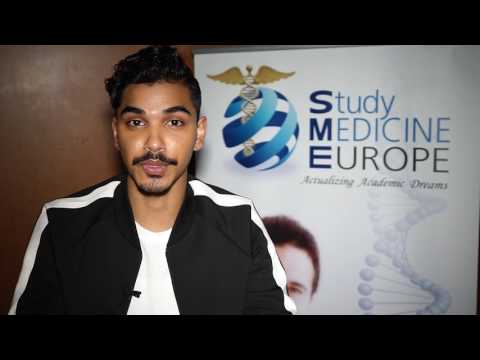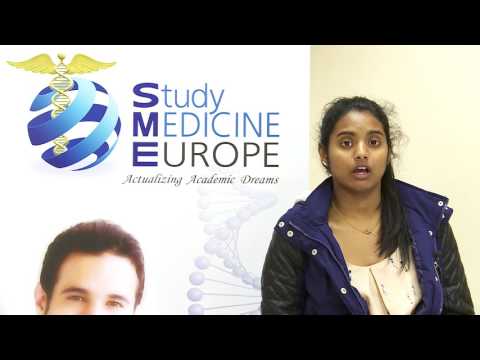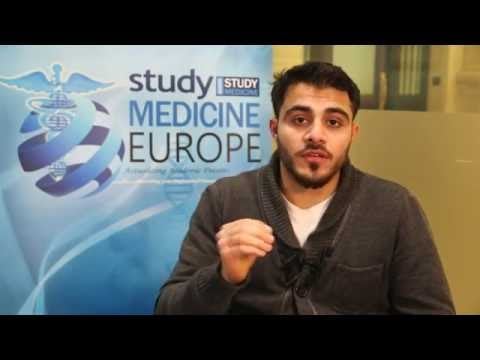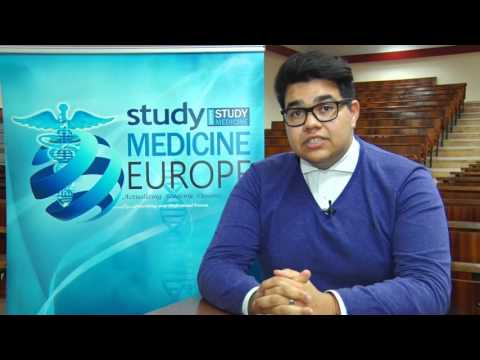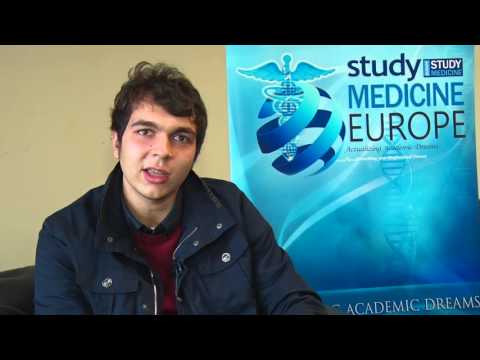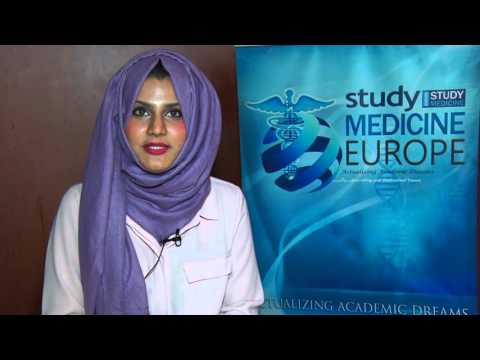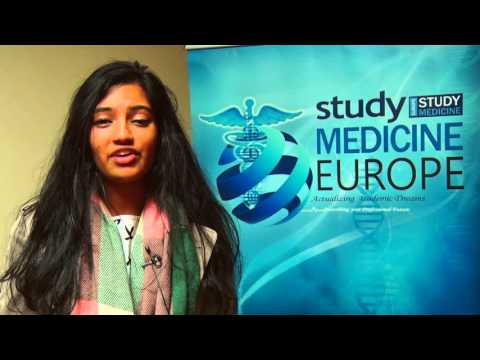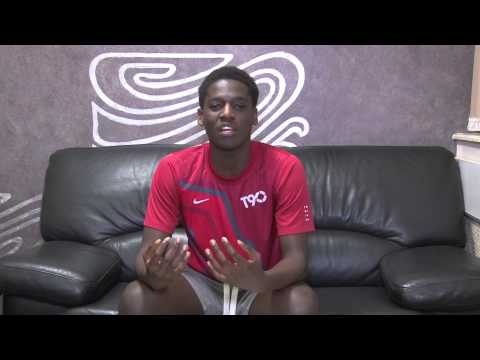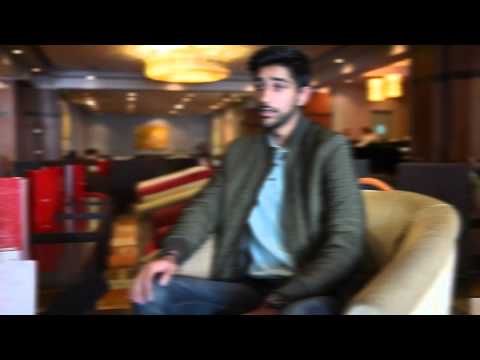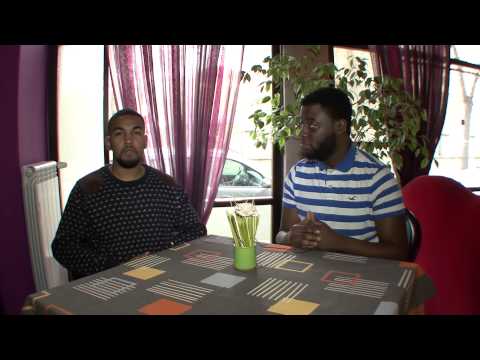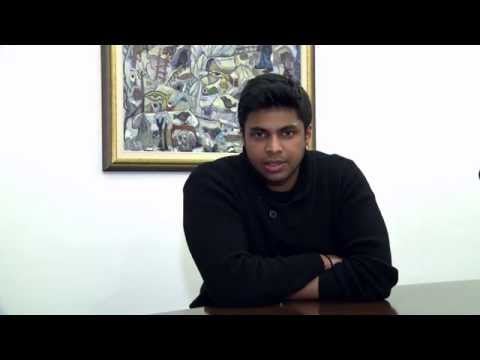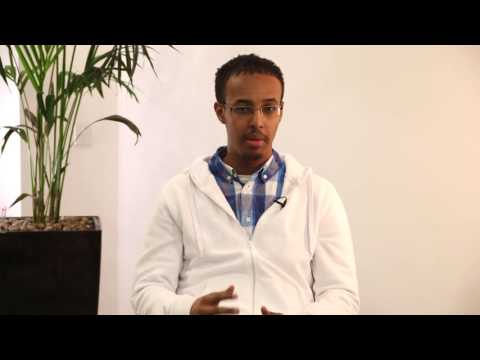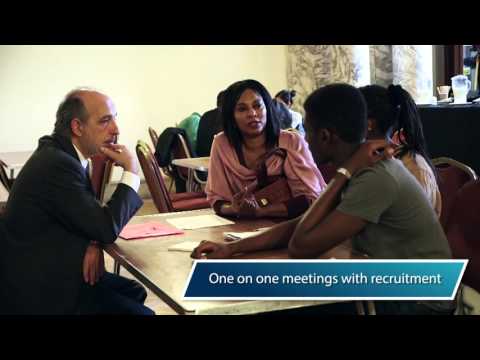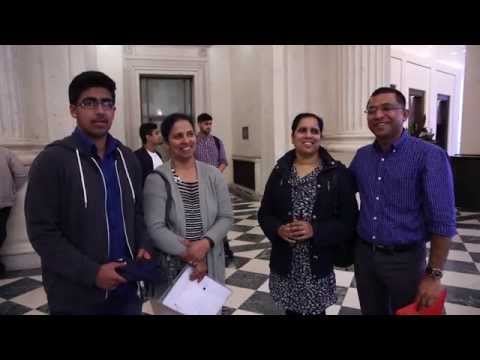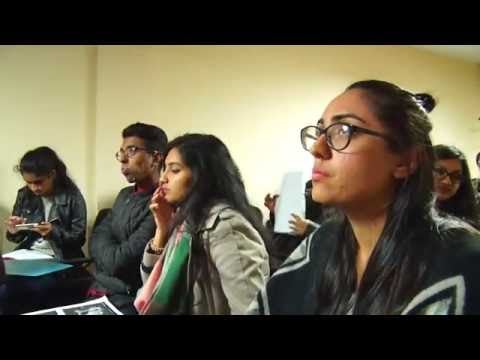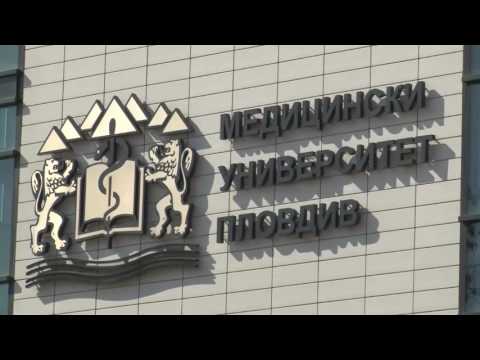Scholarships

Click here to view
Scholarships Requirements
Our Students
Our Students - georgia
Why Study Medicine in English at International University of the Health Sciences, School of Medicine in the Caribbean Islands?
Admission
No entry exams
Tuition fees
Year 1 : $20,750
Year 2 : $17,750
Year 3 : $10,000
Year 4: $10,000
Duration
4 Years
Intake
January, May, September
Funding
Not Available
Online Option
Not Available
Clinical Rotations
Up to the last 2 years

+ Why Choose International University of the Health Sciences, School of Medicine?
Why Choose International University of the Health Sciences, School of Medicine?
- International University of the Health Sciences (IUHS) School of Medicine in Saint Kitts and Nevis in the Caribbean is a leader of medical training in the Northern Hemisphere that is renowned for its practical mission of Active Learning.
- The university’s curriculum is defined by an integration of training in theoretical and clinical settings resulting in contextualised learning from Day 1 of the MD programme.
- The IUHS faculty uphold a shared vision of 21st century medicine delivering diverse, multicultural, and multidisciplinary academic and clin-ical expertise to students at the university campus, local and international affiliate hospitals, and in-person and virtual teaching locations.
- The university is highly accredited in the World Federation for Medical Education (WFME), the Foundation for the Advancement of Interna-tional Medical Education and Research (FAIMER), and the World Directory of Medical Schools (WDOMS), with graduates practising medi-cine in the US, Canada, and the UK.
+ The 4-Year Medicine Programme
The 4-Year Medicine Programme
- Medical graduates from IUHS medical school hold a Doctor of Medicine (MD) degree.
- Students study a 4-year undergraduate programme.
- All IUHS modules are taught in English with a curriculum structure of two phases: 2 years of Basic Sciences for 10 Blocks, followed by 2 years of Clinical Rotations (Core Rotations and Elective Rotations).
- During the first two years of Basic Sciences (92 weeks), modules are studied via Online Live Lectures comprising the following Subject Blocks Zero-10: Block 0: Introduction to Medicine; Block 1: Intro to Basic Sciences; Block 2: Microbiology and Immunology; Block 3: Respira-tory & Cardiovascular Systems; Block 4: Endocrine & Reproductive Systems; Block 5: Gastrointestinal & Renal Systems; Block 6: Central & Peripheral Nervous Systems; Block 7: Haematology, Musculoskeletal, Pathology, Dermatology, Anatomy, Behavioural; Block 8: Epidemiol-ogy, ENT, Histology, Legal, Autoimmune & Tropical Diseases; Blocks 9 and 10: Exams & remediation, customised study plan in preparation for boards.
- During the final two years of Clinical Rotations (80 weeks), Core Rotations are 48 weeks comprising the following: Internal Medicine: 12 weeks; Obstetrics & Gynaecology: 6 weeks; Surgery: 12 weeks; Paediatrics: 6 weeks; Psychiatry: 6 weeks; and, General Family Practice: 6 weeks. Then Elective Rotations are 32 weeks specific to students’ preferences for specialist clinical rotations.
- For Year 3 and Year 4 students undertake clinical rotations at the university’s affiliate hospitals in St. Kitts, the US, the UK, Australia, India, Mexico, and other locations.
- IUHS has three annual intakes (January, May, September), there are no entry exams, and graduating physicians are prepared to practice global medicine.
+ How Will Online Study Be Offered?
How Will Online Study Be Offered?
- IUHS students study all Basic Science modules online using the Live Lectures format.
- Over the course of the undergraduate programme, students complete Year 1 (46 weeks) and Year 2 Basic Sciences (46 weeks) online then commence on-campus and affiliate hospital Clinical Rotations for Year 3 and Year 4.
- The medical school’s online platform supports comprehensive theoretical study of the IUHS proprietary programme that equips students to contextualise key learning concepts.
+ What do the Clinical Rotations in the UK Involve?
What do the Clinical Rotations in the UK Involve?
- The university coordinates international clinical rotation opportunities for up to 2 years.
- Placement offers are made based on student applications and matching their preferences to available rotations in teaching hospitals and clinical facilities in the UK.
- Clinical rotations in the UK cost $400 per week.
+ How Much Does the Programme Cost?
How Much Does the Programme Cost?
| Programme | Programme Starts | Annual Fees (*) ($) |
|---|---|---|
| Medicine | January, May & September |
|
Total680–9408160–11280
*A special offer exclusive to SME students allows tuition fees to be payable in bimonthly instalments.
| Living Costs | Monthly ($) | Annually ($) |
|---|---|---|
| Rent (Private Accommodation) | 400–580 | 4800–6960 |
| Food | 80–120 | 960–1440 |
| Utility Bills (Electricity, Gas &Water) | 80 | 960 |
| Internet | 30 | 360 |
| Transportation | 40 | 480 |
| Health Insurance | 50–90 | 600–1080 |
| Total | 680–940 | 8160–11280 |
+ Admission to International University of the Health Sciences, School of Medicine
Admission to International University of the Health Sciences, School of Medicine
Applicants must provide the following information:
- An application which includes the following details: bio, education history, and course for which you are applying.
- A copy of your secondary education results with subjects studied.
- Two small photos of 4-5cm.
- A personal statement.
- One to Two letters of recommendation.
+ Medical Council Requirements for Recognising Medical Degrees
Medical Council Requirements for Recognising Medical Degrees
Many of the world’s Medical Councils require that the Medical School that awarded the Doctor of Medicine degree (MD) be listed on the World Directory of Medical Schools (WDMS).
Additionally, each region has its own requirements:
- UK The General Medical Council (GMC) expects a medical degree to have a minimum 5,500 Clock Hours over a minimum period of three years.
- USA The Educational Commission For Foreign Medical Graduates (ECFMG) requires a medical degree to have a minimum dura-tion of four years.
- Australia
- The Australian Medical Council (AMC) maintains an additional database of Recognised Medical Schools.
- It also requires a medical degree to have a minimum duration of four years.
+ Life in St. Kitts
Life in St. Kitts
- Students live in the community of St. Kitts, on the largest of the two islands in this rain-forested country in the Antilles islands of the Caribbean.
- This modern yet traditional settlement brings together rich, multifaceted history offering students an inspiring, peaceful place to live.
- St. Kitts is a stunning island location with a western coast bordering the Caribbean Sea and an eastern coast meeting the Atlantic Ocean.
- The region is easily accessed by direct flights from the US, Canada, and Europe.
+ Life in Saint Kitts and Nevis
Life in Saint Kitts and Nevis
- This independent island nation is in the West Indies encompassing the two immediately-adjacent islands of this sovereign Caribbean country.
- Residents refer to themselves as ‘Kittitians’ and ‘Nevisians’, the primary language is English, and the nation’s currency is the Eastern Carib-bean Dollar.
- ‘The Narrows’ 3km channel separates the two main islands and the country is celebrated for its maritime attractions and lifestyle, extraordinary National Parks, historic fortresses and architecture, and volcanic peaks.
- The cultural landscape for visitors and locals is thoroughly enjoyable with music festivals, delicious food, and fresh island agriculture.
Watch Our Videos
Real Success StoriesOpen DaysEntry ExamsNetworking Events
Reviews
+ 2023
2023
+ 2022
2022
+ 2021
2021
+ 2020
2020
+ 2019
2019
+ 2018
2018
+ 2017
2017
+ 2016
2016
+ 2015
2015
Admission
No entry exams
Tuition fees
Year 1 : $20,750
Year 2 : $17,750
Year 3 : $10,000
Year 4: $10,000
Duration
4 Years
Intake
January, May, September
Funding
Not Available
Online Option
Not Available
Clinical Rotations
Up to the last 2 years


+ Why Choose International University of the Health Sciences, School of Medicine?
Why Choose International University of the Health Sciences, School of Medicine?
- International University of the Health Sciences (IUHS) School of Medicine in Saint Kitts and Nevis in the Caribbean is a leader of medical training in the Northern Hemisphere that is renowned for its practical mission of Active Learning.
- The university’s curriculum is defined by an integration of training in theoretical and clinical settings resulting in contextualised learning from Day 1 of the MD programme.
- The IUHS faculty uphold a shared vision of 21st century medicine delivering diverse, multicultural, and multidisciplinary academic and clin-ical expertise to students at the university campus, local and international affiliate hospitals, and in-person and virtual teaching locations.
- The university is highly accredited in the World Federation for Medical Education (WFME), the Foundation for the Advancement of Interna-tional Medical Education and Research (FAIMER), and the World Directory of Medical Schools (WDOMS), with graduates practising medi-cine in the US, Canada, and the UK.
+ The 4-Year Medicine Programme
The 4-Year Medicine Programme
- Medical graduates from IUHS medical school hold a Doctor of Medicine (MD) degree.
- Students study a 4-year undergraduate programme.
- All IUHS modules are taught in English with a curriculum structure of two phases: 2 years of Basic Sciences for 10 Blocks, followed by 2 years of Clinical Rotations (Core Rotations and Elective Rotations).
- During the first two years of Basic Sciences (92 weeks), modules are studied via Online Live Lectures comprising the following Subject Blocks Zero-10: Block 0: Introduction to Medicine; Block 1: Intro to Basic Sciences; Block 2: Microbiology and Immunology; Block 3: Respira-tory & Cardiovascular Systems; Block 4: Endocrine & Reproductive Systems; Block 5: Gastrointestinal & Renal Systems; Block 6: Central & Peripheral Nervous Systems; Block 7: Haematology, Musculoskeletal, Pathology, Dermatology, Anatomy, Behavioural; Block 8: Epidemiol-ogy, ENT, Histology, Legal, Autoimmune & Tropical Diseases; Blocks 9 and 10: Exams & remediation, customised study plan in preparation for boards.
- During the final two years of Clinical Rotations (80 weeks), Core Rotations are 48 weeks comprising the following: Internal Medicine: 12 weeks; Obstetrics & Gynaecology: 6 weeks; Surgery: 12 weeks; Paediatrics: 6 weeks; Psychiatry: 6 weeks; and, General Family Practice: 6 weeks. Then Elective Rotations are 32 weeks specific to students’ preferences for specialist clinical rotations.
- For Year 3 and Year 4 students undertake clinical rotations at the university’s affiliate hospitals in St. Kitts, the US, the UK, Australia, India, Mexico, and other locations.
- IUHS has three annual intakes (January, May, September), there are no entry exams, and graduating physicians are prepared to practice global medicine.
+ How Will Online Study Be Offered?
How Will Online Study Be Offered?
- IUHS students study all Basic Science modules online using the Live Lectures format.
- Over the course of the undergraduate programme, students complete Year 1 (46 weeks) and Year 2 Basic Sciences (46 weeks) online then commence on-campus and affiliate hospital Clinical Rotations for Year 3 and Year 4.
- The medical school’s online platform supports comprehensive theoretical study of the IUHS proprietary programme that equips students to contextualise key learning concepts.
+ What do the Clinical Rotations in the UK Involve?
What do the Clinical Rotations in the UK Involve?
- The university coordinates international clinical rotation opportunities for up to 2 years.
- Placement offers are made based on student applications and matching their preferences to available rotations in teaching hospitals and clinical facilities in the UK.
- Clinical rotations in the UK cost $400 per week.
+ How Much Does the Programme Cost?
How Much Does the Programme Cost?
| Programme | Programme Starts | Annual Fees (*) ($) |
|---|---|---|
| Medicine | January, May & September |
|
Total680–9408610–11280
*A special offer exclusive to SME students allows tuition fees to be payable in bimonthly instalments.
| Living Costs | Monthly ($) | Annually ($) |
|---|---|---|
| Rent (Private Accommodation) | 400–580 | 4800–6960 |
| Food | 80–120 | 960–1440 |
| Utility Bills (Electricity, Gas &Water) | 80 | 960 |
| Internet | 30 | 360 |
| Transportation | 40 | 480 |
| Health Insurance | 50–90 | 600–1080 |
+ Admission to International University of the Health Sciences, School of Medicine
Admission to International University of the Health Sciences, School of Medicine
Applicants must provide the following information:
- An application which includes the following details: bio, education history, and course for which you are applying.
- A copy of your secondary education results with subjects studied.
- Two small photos of 4-5cm.
- A personal statement.
- One to Two letters of recommendation.
+ Medical Council Requirements for Recognising Medical Degrees
Medical Council Requirements for Recognising Medical Degrees
Many of the world’s Medical Councils require that the Medical School that awarded the Doctor of Medicine degree (MD) be listed on the World Directory of Medical Schools (WDMS).
Additionally, each region has its own requirements:
- UK The General Medical Council (GMC) expects a medical degree to have a minimum 5,500 Clock Hours over a minimum period of three years.
- USA The Educational Commission For Foreign Medical Graduates (ECFMG) requires a medical degree to have a minimum dura-tion of four years.
- Australia
- The Australian Medical Council (AMC) maintains an additional database of Recognised Medical Schools.
- It also requires a medical degree to have a minimum duration of four years.
+ Life in St. Kitts
Life in St. Kitts
- Students live in the community of St. Kitts, on the largest of the two islands in this rain-forested country in the Antilles islands of the Caribbean.
- This modern yet traditional settlement brings together rich, multifaceted history offering students an inspiring, peaceful place to live.
- St. Kitts is a stunning island location with a western coast bordering the Caribbean Sea and an eastern coast meeting the Atlantic Ocean.
- The region is easily accessed by direct flights from the US, Canada, and Europe.
+ Life in Saint Kitts and Nevis
Life in Saint Kitts and Nevis
- This independent island nation is in the West Indies encompassing the two immediately-adjacent islands of this sovereign Caribbean country.
- Residents refer to themselves as ‘Kittitians’ and ‘Nevisians’, the primary language is English, and the nation’s currency is the Eastern Carib-bean Dollar.
- ‘The Narrows’ 3km channel separates the two main islands and the country is celebrated for its maritime attractions and lifestyle, extraordinary National Parks, historic fortresses and architecture, and volcanic peaks.
- The cultural landscape for visitors and locals is thoroughly enjoyable with music festivals, delicious food, and fresh island agriculture.
Watch Our Videos
Real Success StoriesOpen DaysEntry ExamsNetworking Events
Reviews
+ 2023
2023
+ 2022
2022
+ 2021
2021
+ 2020
2020
+ 2019
2019
+ 2018
2018
+ 2017
2017
+ 2016
2016
+ 2015
2015








